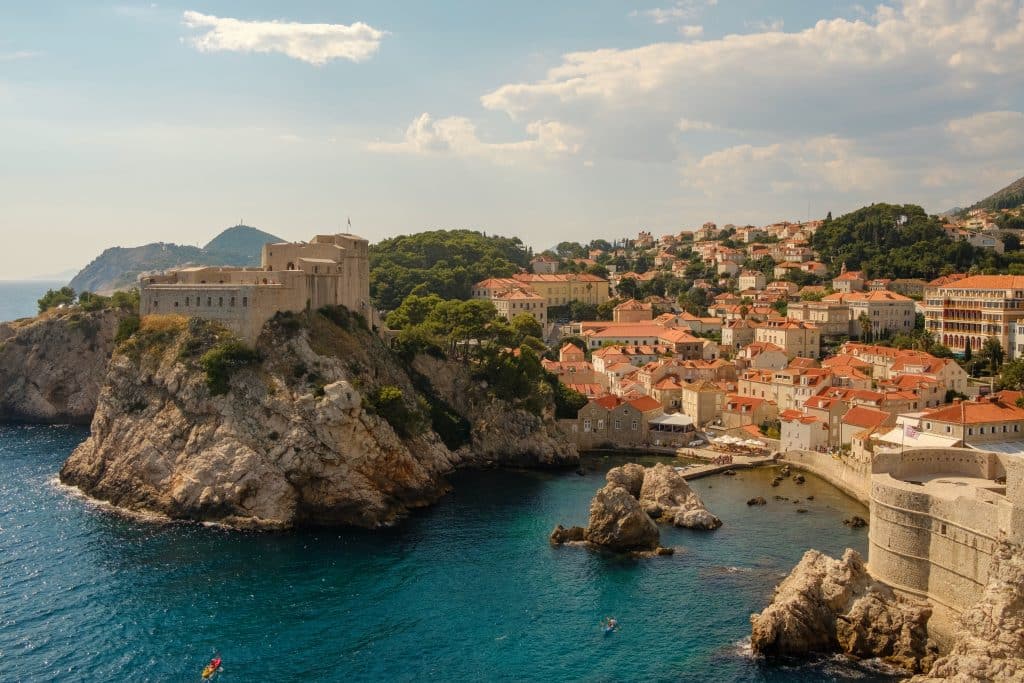Croatia is a “unitary democratic parliamentary republic”, a non-federal system that answers to a central government similar to the UK, as opposed to the federal state system of the USA.
Croatia’s parliament, known as the Sabor, is composed of a single house. MPs are elected to the house by popular vote every four years. Croatia has 12 electoral districts. Ten of the electoral districts are regional constituencies containing around 400,000 people each, the 11th electoral district represents Croatians living abroad, and the final electoral district represents ethnic and national minorities.
The Croatian constitution, adopted in 1990 when Croatia declared independence from Yugoslavia, mandates that the Sabor must have at least 100, and no more than 160 members. The Sabor currently has 151 seats, divided as follows:
- 140 seats for the 10 regional constituencies, divided equally with 14 MPs each.
- 3 seats for the 11th district, representing Croatians abroad.
- 8 seats for the 12th district, representing ethnic and national minorities.
Parliamentary candidates can run either as a member of a political party, or as an independent.
The two largest parties in Croatia are the Croatian Democratic Union (HDZ), a centre-right party, and the Social Democratic Party of Croatia (SDP), a centre-left party. At time of publishing, the HDZ has 62 seats in the Sabor and the SDP has 32.
Croatia technically has three presidents; the President of the Republic of Croatia, the President of the Government of the Republic of Croatia, and the President of the Croatian Parliament. To simplify this, it is common for English speakers to refer to them as the President, the Prime Minister, and the Speaker, respectively.
The President of the Republic of Croatia is the head of state. The President is elected by popular vote for a 5 year term, with a 2 term limit. They cannot be a member of any political party and must therefore withdraw their party membership before their inauguration. The President is the Commander-in-Chief of Croatia’s armed forces, and appoints the Prime Minister – provided they are supported in their choice by an absolute majority in the Sabor. The President can also appoint and recall Croatia’s diplomatic representatives, grant pardons and call for referendums.
After being appointed by the President, the Prime Minister appoints 20 MPs as government ministers, which each focus on a particular aspect of Croatian society, similar to the UK cabinet. Similarly to the Prime Minister’s selection, the appointment of the government ministers must receive approval from the majority of the Sabor. Four of the government ministers will be named as Deputy Prime Ministers to more closely help the Prime Minister carry out their duties.
The Speaker of the Croatian parliament is the presiding officer for the Sabor and deputy for the President; if the President is unable to lead the Croatian administration, due to illness or vacation, then the Speaker becomes Acting-President.
The Sabor mainly meets in two periods; the first from 15 January to 30 June, and the second from 15 September to 15 December. If required, the President, the government, or a majority of the Sabor can call for “extraordinary sessions” outside of these periods.
Also important to Croatian politics are the Croatian Constitutional Court and the National Judicial Council.
The National Judicial Council is composed of eleven members; seven judges, two university professors and two parliament members. The National Judicial Council role is to appoint judges to the municipal and county courts, and the Supreme Court.
The Croatian Constitutional Court ensures that legislation passed by the Sabor is in accordance with the Croatian constitution and hears appeals against the decisions of the National Judicial Council. The Constitutional Court is composed of thirteen judges, elected by the Sabor on eight-year terms.
Croatia is also divided into 20 counties, which each have their own council composed of representatives elected by popular vote, which administer local matters, similar to councils in the UK.


